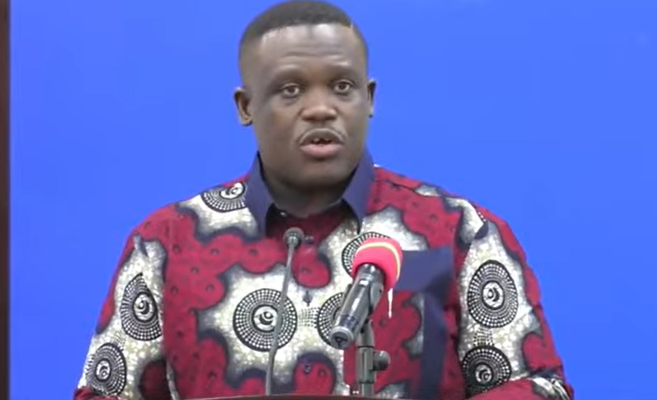In a recent press briefing, Samuel Nartey George, Ghana’s Minister of Communication, Digital Technology, and Innovation, shed light on the precarious financial situation of AirtelTigo (AT), a telecommunications company acquired by the previous government. He revealed a staggering debt burden of $200 million, a figure reached after a debt restructuring exercise, and emphasized the ongoing financial hemorrhage with monthly operating losses reaching GHS20 million. This dire situation, he argued, necessitates immediate intervention, including negotiations with creditors for substantial debt write-offs to ensure AT’s survival. George’s pronouncements underscore the significant challenges facing the company and the urgency of finding a sustainable solution.
George’s critique centered heavily on the previous government’s handling of the AirtelTigo acquisition. He described the acquisition, purportedly for a nominal sum of $1, as both “disingenuous” and “unpatriotic,” highlighting the massive $400 million debt AT carried at the time of purchase, a burden dwarfed by its insufficient revenue stream. This, George argued, demonstrated a reckless disregard for the company’s financial health and the potential consequences for the Ghanaian economy. The Minister’s strong condemnation painted a picture of a poorly conceived acquisition that saddled the state with a financially unsustainable entity.
Further compounding AT’s financial woes, George revealed the obsolete state of the company’s core and dealing platforms. He attributed this technological deficiency to the previous operators, Bharti and Millicom (Tigo), who allegedly failed to invest in crucial infrastructure upgrades for five years leading up to the acquisition. This lack of investment, George asserted, left the company technologically behind, hindering its ability to compete effectively in the market and further contributing to its financial struggles. The neglected infrastructure, therefore, became another significant factor in the overall decline of AT.
The Minister painted a stark picture of the consequences of the previous government’s decision-making, portraying it as an “abdication of responsibility” that disregarded Ghana’s best interests. He argued that the acquisition, coupled with the neglected infrastructure, created a perfect storm of financial distress for AT, leaving the current administration to grapple with its substantial debt and operational losses. George’s pointed criticism served to highlight the gravity of the situation and the difficult task ahead in restoring AT’s viability.
The immediate priority, according to George, is stemming the financial bleeding. He outlined ongoing efforts to engage with AT’s creditors, aiming to negotiate significant debt reductions, or “haircuts,” to make the company’s debt burden manageable. This crucial step, George emphasized, is necessary to pave the way for AT’s eventual recovery and ensure its long-term sustainability. The success of these negotiations will be crucial in determining AT’s future trajectory.
In his concluding remarks, George reiterated the urgency of the situation and the government’s commitment to finding a viable solution. He emphasized the need for swift action to address the company’s financial challenges and acknowledged the magnitude of the task ahead. While outlining the current strategy of negotiating with creditors, he also hinted at the possibility of exploring other options to ensure AT’s survival and eventual contribution to Ghana’s digital economy. The Minister’s statements conveyed a sense of determination to navigate this complex situation and secure a positive outcome for AT and the nation.


